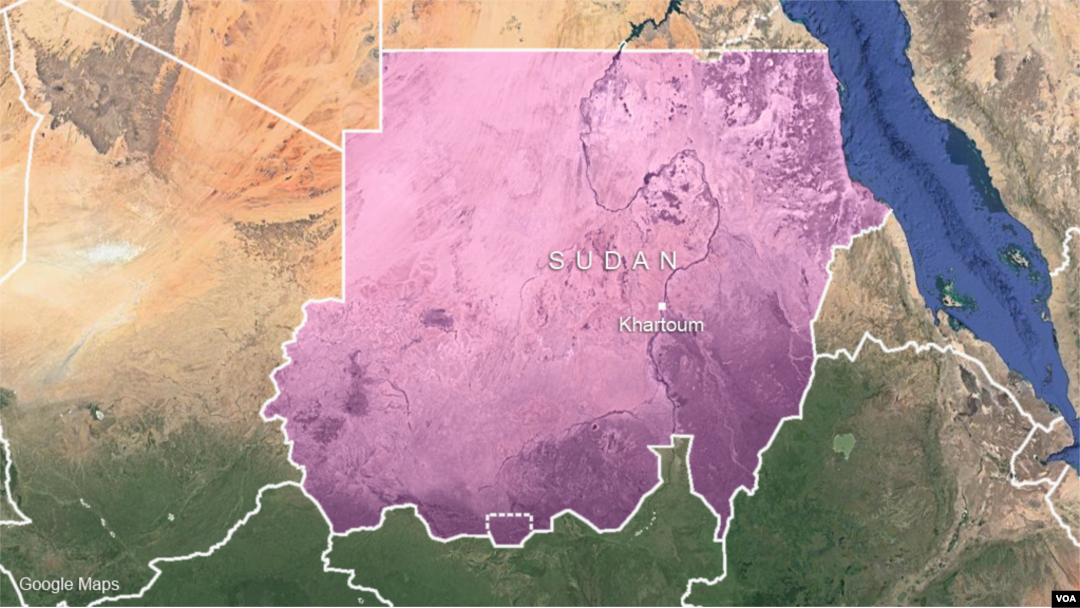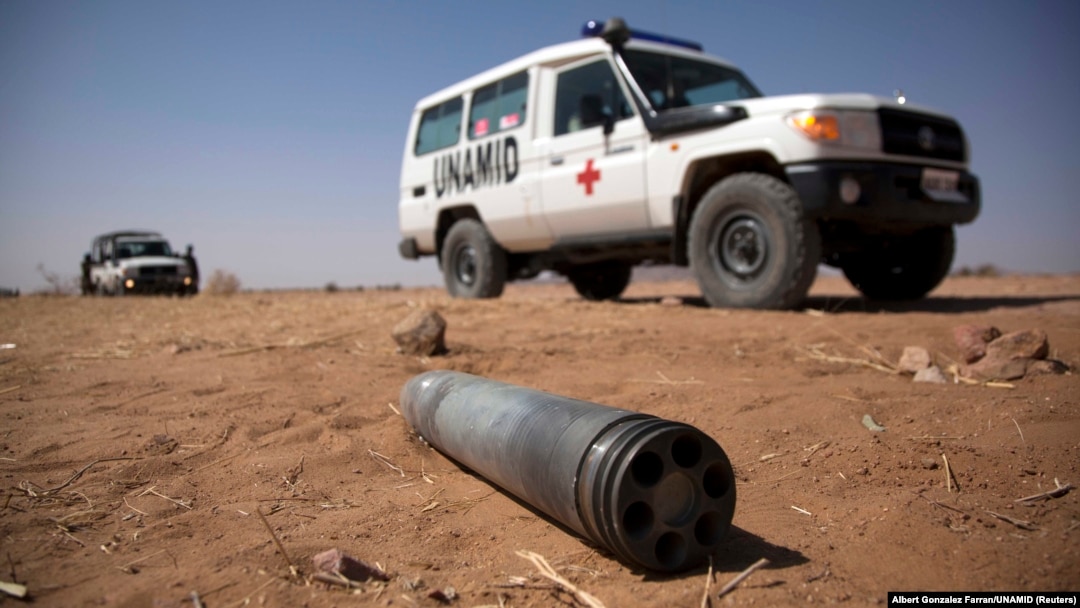The U.S. should consider removing Sudan from its list of states sponsoring terrorism, a senior Sudanese diplomat in Washington told VOA, citing the country's efforts against terror groups on its soil.
Waleed Basheer, the deputy chief of mission at the Sudanese Embassy in Washington, welcomed the recent annual U.S. report on terrorism, but voiced concern over Sudan's inclusion on the list.
"The U.S. report confirmed that Sudan is not sponsoring terrorism. Nevertheless, the United States continues to designate Sudan as a state sponsor of terrorism," Basheer told VOA. "This is kind of contradicting; it is simply unjust and unfair."
U.S. report
The annual U.S. report on terrorism — featuring a breakout by country — was released last month. It acknowledges Sudan's cooperation in combating terrorism in the region in 2017.
"The Government of Sudan continued to pursue counterterrorism operations alongside regional partners, including operations to counter threats to U.S. interests and personnel in Sudan. Sudan's de-radicalization program focused on reintegration and rehabilitation of returned foreign terrorist fighters and those espousing terrorist ideologies," the report said.
However, U.S. officials insist the nation should continue to build upon its positive actions.
"Sudan continues to be designated a state sponsor of terrorism. If we conclude that Sudan has sufficiently built upon the positive actions it has taken, including by improving respect for human rights, enhancing humanitarian access, and advancing Sudan's peace process, and determine that the relevant statutory criteria have been met, we would consider beginning the process to rescind Sudan's State Sponsor of Terrorism designation," a U.S. State Department official told VOA.
But some analysts, such as Kelsey Lilley, who was a coordinator for the Atlantic Council's Sudan Task Force, contend there is a disconnect between the language in the U.S. report and the U.S. policy regarding Sudan.

"There is clearly a disconnect between the moderated, but positive, language of the State Department report on terrorism ... and its continued inclusion on the State Sponsors of Terrorism list," Lilley said.
"Sudan is alongside Syria and Iran, as well as North Korea. It is hard to reconcile those states' support for terrorist activities with what we know, at least openly, about Sudan," she added.
Positive measures
Sudanese officials assert they have increased regional collaboration in countering terrorism and violent extremism.
"Sudan joint forces with neighboring countries to protect the borders are very effective and resulted in the decline of both ISIS and al-Qaida's terrorist activities in the region," Basheer said, using an acronym for Islamic State.
He added that the country also has taken measures against money laundering and transnational crimes.
"We are controlling and monitoring the movement of passengers with a heavy patrol at the borders. We are combating transnational crimes, combating money laundering, human trafficking, illegal immigration and drug trafficking," he said.
Sanctions history
Sudan was designated a state sponsoring terrorism by the Clinton administration in 1993. The country also was hit with U.S. sanctions over Khartoum's alleged support for multiple terror groups, including al-Qaida, Hamas and Hezbollah.
Osama bin Laden and his followers lived in Sudan between 1992 and 1996.
Last year, the Trump administration lifted sanctions on Sudan and withdrew the country's name from the list of countries with travel restrictions. The hope, at least inside Sudan, was that the removal of sanctions would help revive the economy.
That has not happened. Sudan's economy remains in crisis due to surging inflation, a high foreign debt and the loss of oil revenue due to the secession of South Sudan in 2011.
But some analysts, like Omer Ismail, a senior policy adviser at Enough Project, a Washington-based think tank that studies conflicts in Africa, says the Sudanese government is responsible for the economy.
"The regime is built on corruption and managed to steal the country's resources. Businesses through government contracts managed to transfer money out of Sudan. That is why the economy suffered multiple times and became worse even than before the economic sanctions were lifted," Ismail said.
However, David Hoile, director of the London-based Africa Research Center, blames Sudan's terror designation for its economic hardships.
"Because Sudan is on the list, the American government is legally obliged to oppose any bank loans, any credits, any instruction from the IMF or World Bank, or any financial institution, with which the American government is involved," Hoile said.
"This is a huge obstacle to any economy," he added.
Maintaining leverage?
Some experts say keeping the country on the list is important because it gives the U.S. leverage over Sudan.
"Their [Sudan's] behavior continues to be appalling. This behavior needs to be condemned," Eric Reeves, a professor at Smith College in Massachusetts and an expert on Sudan, told VOA.
"As recently as 2013 the regime was supporting radical Islamists in Libya, probably until 2014. That will be one example of radical Islam being supported by the Khartoum regime. As long as they are on the list, they are going to want to do more," Reeves added.
Removing the country from the list would take away that leverage, according to Ismail.
"I believe that removing Sudan from the terrorist list is going to take away a huge advantage from the U.S. to use to pressure the Sudanese government to make changes," Ismail said.
Hoile of the Africa Research Center believes that with changes in Washington, the prospect for the country's removal looks promising.
"With [U.S. President Donald] Trump, you have a man who is independent, who is not wedded to pre-existing dogma. He is not wedded to the old song on Sudan," Hoile said.
"Sudan may come off the list in the next [few] months," he added.
"The removal process mandates that the U.S. intelligence community conducts a months-long review about whether the Sudanese government is supporting terrorism," Lilley said, adding that even if the administration supports it, Congress has 45 days to block the move.


